‘Pay to play’: Small brewers take aim at multinational ‘duopoly’ locking up pub taps
Aussies pay among the highest prices for beer in the world, while two giant multinationals rake in eye-watering profit margins.
Australia’s foreign-owned beer “duopoly” behind the likes of VB and Toohey’s has been accused of freezing out small local brewers from pub taps with “anti-competitive” contracts.
Independent brewers have long complained about being unable to compete with lucrative deals offered to venues by deep-pocketed multinationals, including cash rebates and other incentives such as furniture fit-outs.
But the issue, which was dismissed by the competition regulator in 2017, has only “gotten worse” since then as the number of small brewers nearly doubled, from 350 to more than 600, industry representatives say.
“In the last five years a lot more independent brewers have come in wanting to have a go at those taps, but the real estate is taken up by these brewers,” said Mick Neil, co-founder of Philter Brewing in Sydney’s Marrickville.
“Is it unfair competition considering that these breweries, they’re leasing the space but providing incentives to the publicans to control those taps in the form of rebates? It’s harder for independents to fork out thousands of dollars to control taps.”
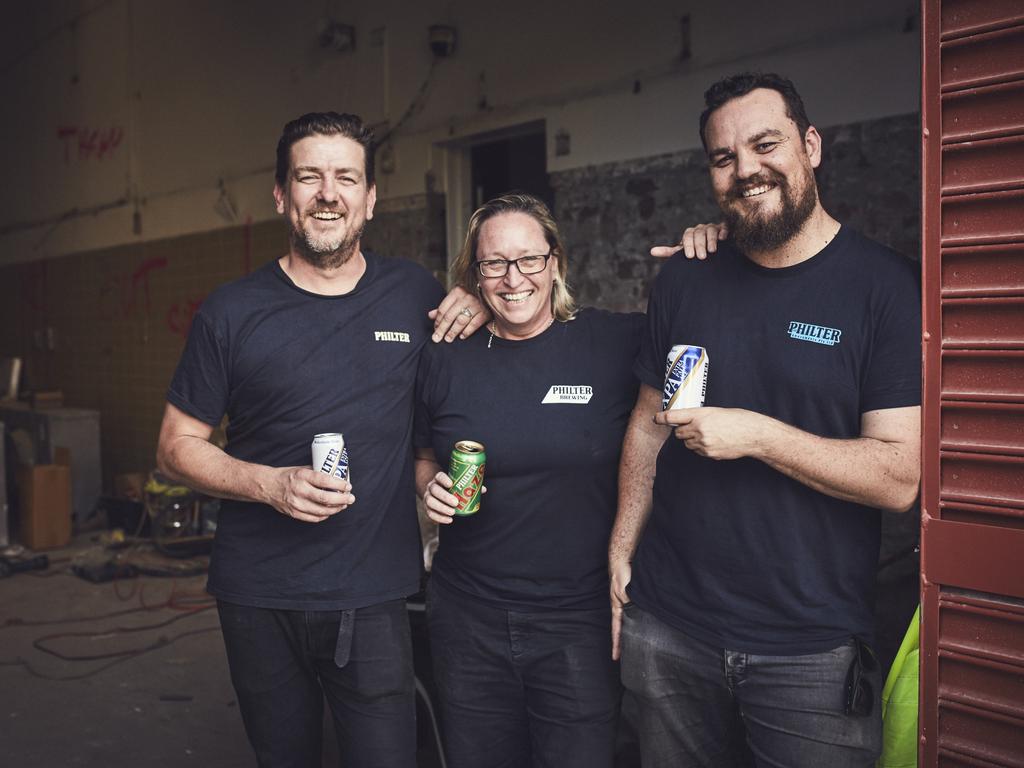
Philter, founded in 2017 by Mr Neil and his neighbour Stef Constantoulas, now employs around 35 people and generates $30 million in sales, and recently launched an equity crowd-funding campaign, which allows retail investors to buy a stake in a private company.
The pair have talked down the raft of acquisitions of craft brewers by CUB and Lion, which Mr Constantoulas says results in conformity and blander-tasting beer.
In 2021, Lion absorbed Fermentum, the company behind iconic Byron Bay beer brand Stone & Wood, for a reported $500 million — causing upset among many of its fans and leaving South Australia’s Coopers as the largest remaining Australian-owned brand.
“At some point when a business comes to a certain size obviously they become very attractive to those multinationals, but for all the other independents out there having a go … [we need] a fairer playing field,” Mr Neil said.
Exclusive tap contracts, which might see 18 out of 20 locked up by the big brewer, are “not new to the Australian market”.
“Since the 1930s, the big breweries in every city, whether it was Toohey’s in NSW or Carlton in Melbourne, they basically built pubs in the shadows of the breweries,” Mr Neil said.
“Over the years those [pubs] became more independent-owned, but the breweries continued to lock up the pubs as either being a Toohey’s pub or Carlton pub or whatever. With the rise of independent beers [such as Hahn — which was bought by Toohey’s in 1993 — and Coopers] there was a movement towards pubs not having contracts with only one brewer but maybe a fairer 80-20 weighting.”
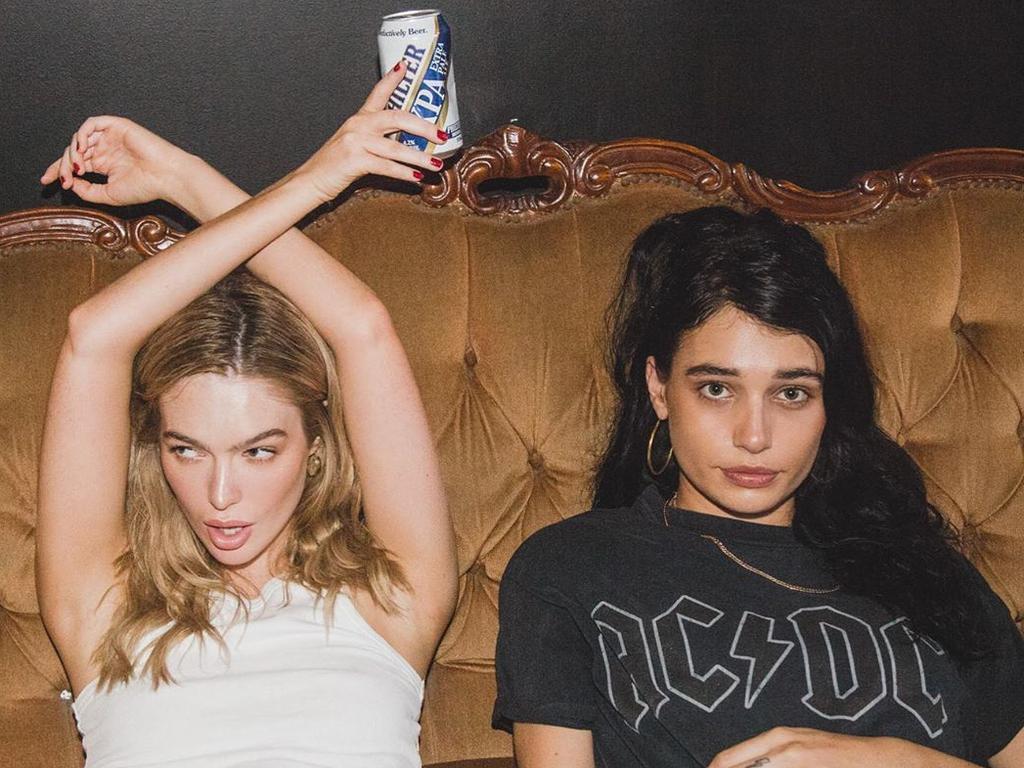
A parliamentary inquiry into competition earlier this year heard evidence that beer brewers were raking in eye-watering profit margins of up to 40 per cent in Australia, where drinkers pay among the highest prices in the world.
Roughly 80 to 85 per cent of beer sales in the country are dominated by two Japanese multinationals.
Carlton & United Breweries (CUB), which owns brands including Carlton Draught and Victoria Bitter, was acquired by Asahi in 2020. Lion, formerly Lion Nathan, was acquired by Kirin in 2009. Lion’s beers include Toohey’s, XXXX and Hahn.
High profit margins and high taxes — Australia’s beer excise of $59.06 per litre of pure alcohol makes it the world’s third highest-taxed country behind Finland and Norway — have been blamed for sky-high beer prices.
At the same time, independents claim alleged anti-competitive behaviour by CUB and Lion is stifling growth of alternatives.
Labor MP Andrew Charlton, who grilled representatives from the two companies during the parliamentary inquiry last month, described beer brewing as “one of the worst duopolies in Australia and so ridiculously profitable”.
“Australians are drinking among the most expensive beer in the world,” he told The Australian Financial Review last week.
“Is this not a clear case of a [duopoly] that is negatively affecting Australian consumers?”
According to the World Health Organisation, the average price per 500ml of beer in Australia as of 2016 was $US5.10 ($7.90), compared with $US3.10 ($4.80) in the US, $US3.47 ($5.37) in the UK and Canada, and $US3.58 ($5.54) in New Zealand.
“Australia has one of the most restricted beer markets in the world with market power in the hands of a very small number of large corporations,” Richard Adamson from the Independent Brewers Association (IBA) told the House of Representatives economics committee in July.
“Two foreign-owned companies dominate beer supply and two supermarkets dominate the sale of beer.”
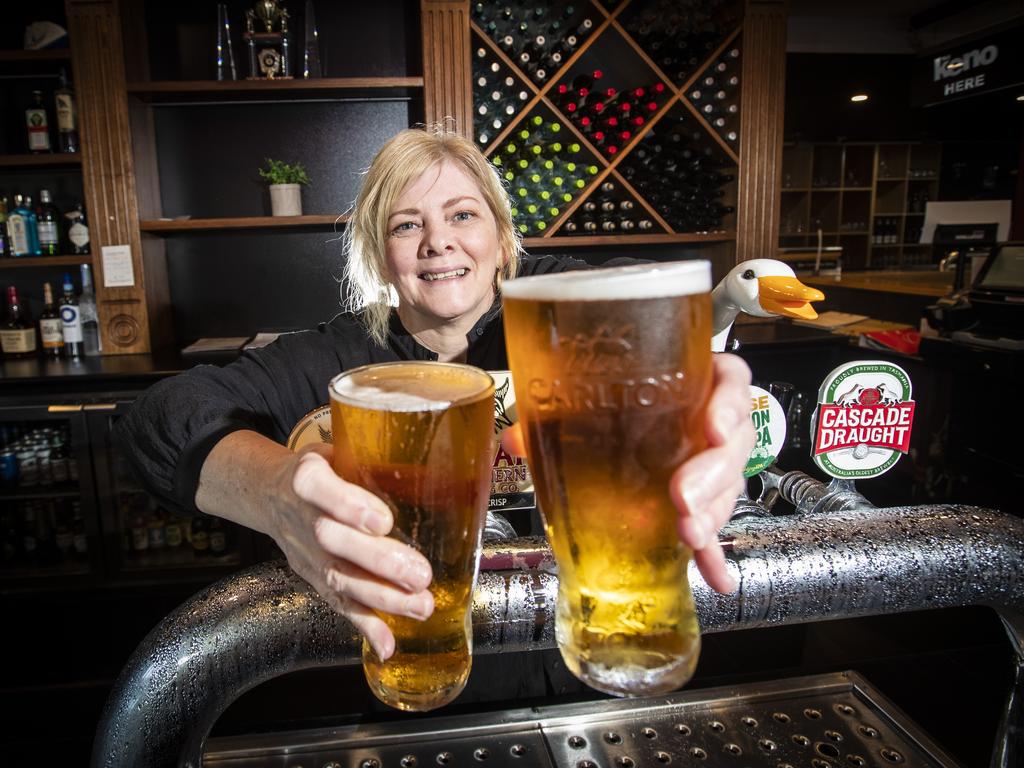
He noted that Endeavour Group, Woolworths’ former drinks and hotel arm that was spun off from the retailer in 2021, and Coles were also rapidly expanding their own beer brands.
“These conditions make it very challenging for independently owned small businesses to access key distribution channels and respond to consumer demand,” Mr Adamson said.
“This restrictive and anti-competitive marketplace, coupled with the challenging market conditions in the brewer space, with rising input costs and the biannual budgeting of excise tied to CPI, threatens the existence of many independent brewers.”
A spokesman for CUB declined to comment.
Asahi chief executive Amanda Sellers, representing CUB at a parliamentary hearing last month, said she disagreed with Coopers’ evidence to the inquiry that the beer market had become “pay to play”.
She also rejected the IBA’s claim that, according to its members, even if they secure contracts, pubs will often short-order their kegs, so the beer is made unavailable to consumers for key selling periods of trade in order for pubs to meet the rebate targets set in their contracts.
“I would disagree with them,” she said.
“The majority of our customer venues are free to range smaller brewers and craft beer products. It is for the publicans to determine what they range in their venues, based on consumer demand.”
A Lion spokeswoman said, “Publicans are in the business of giving their customers what they want, and we respond, in turn, to their needs. In pubs where craft beer is popular, you’ll usually find our beers alongside a range of independent brands.”
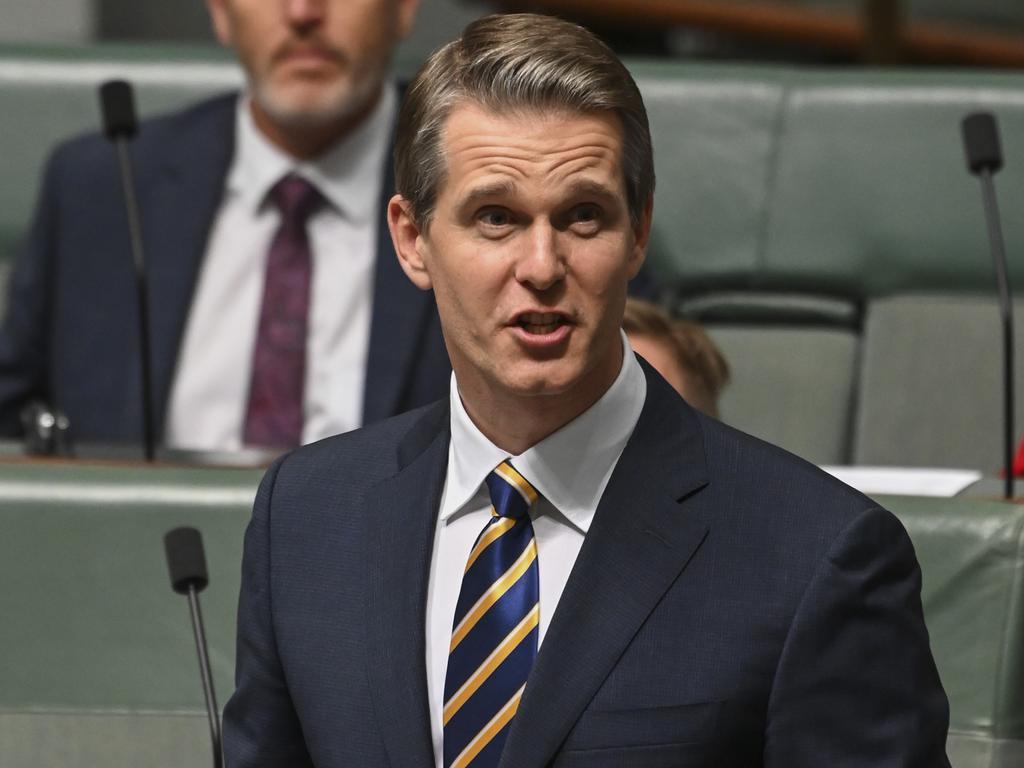
John Preston, chief executive of the Brewers Association, said craft beer has surged over the past 15 years and “that’s a good thing for Australian beer and beer drinkers”.
“There’s more than 600 breweries in Australia, more than any time in our history,” he said. “Independent beer’s share of draught beer has increased by seven times over the past 15 years — this shows that competition is increasing.”
Dr Charlton, grilling Ms Sellers last month, expressed disbelief at her assertion that the Australian beer market was “competitive”.
“The reality of this industry is that we have two players that have an 80-plus per cent market share,” he said.
“These businesses are so valuable that one was recently sold for $16 billion. They’re running margins of 40 per cent, and they’re driving some of the highest prices of beer in the world.”
In 2017, the ACCC conducted an “in-depth” investigation into beer tap contracts following allegations from craft brewers that they were being locked out of pubs.
The watchdog ultimately found that “their impact is unlikely to substantially lessen competition in any of the markets we investigated”.
“Although some venues had exclusivity arrangements, most pubs and clubs said they did not feel constrained from allocating taps to smaller brewers and could make taps available for craft beer if necessary,” then ACCC deputy chair Dr Michael Schaper said at the time.
“While some craft brewers may have been refused access to taps by certain venues, our investigation found that the venues were responding to consumer demand for certain beer brands, rather than restrictions imposed by the big brewers. In fact, over half of the venues contacted by the ACCC indicated that customer preference was the key factor in determining the brands, types of beer and number of craft beers offered by the venue.”
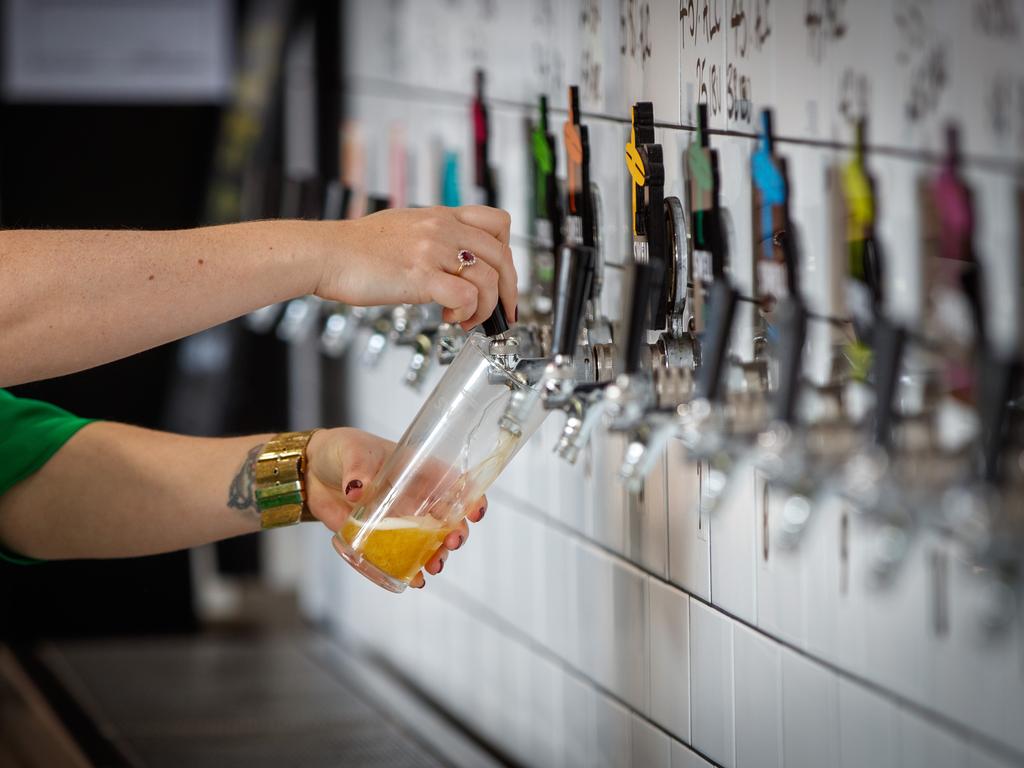
But Kylie Lethbridge, chief executive of the IBA, argued the 2017 investigation, which covered 36 venues in NSW and Victoria, was “limited”.
“It was 36 venues which had contracts … you probably want to talk to the people that don’t have contracts and ask why,” she said. “The argument from the IBA at the time was very much it was limited and not the best investigation that could have been done.”
According to the IBA, more than 80 per cent of Australia’s taps are “locked up”.
“Those tap contracts are often anti-competitive because they sometimes exclude others … and [the pubs] are incentivised,” Ms Lethbridge said.
“Small Aussie-owned businesses can never compete [with those incentives]. Any publican that gets their furniture and significant rebates is not going to say no. The competition issue is important because in a tough market, access to wholesale is really important, and access to taps is a big part of limiting that.”
Ms Lethbridge argued the problem had “definitely gotten worse” since the 2017 ACCC review.
“The competition from our side has increased because the craft beer industry has grown so there’s more competition for those taps,” she said.
“We’re not pointing the finger at venues and pubs, because their job is hard as well. But this is why you see the proliferation of the local taphouses and brewpubs popping up in industrial estates around the corner from you — because we can’t get access to venues, craft beer makers are providing their own.”
An ACCC spokesman said, “We encourage any brewers who are concerned about potentially anticompetitive behaviour to report it to the ACCC.”






